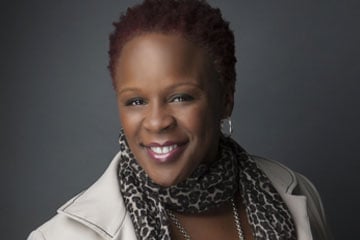Collaborative office spaces and flexible working arrangements aren’t just aspects associated with Silicon Valley tech startups anymore — they are features, along with also having a private office for independent work, that young lawyers desire, according to a recent report from the United States called What Millennial Attorneys Want.

Clients expecting faster results and lower legal fees results in a need for a modern workflow, and office space should reflect this culture that tech-savvy millennials help drive. Meeting these types of working expectations could be a factor in the attraction and retention of top talent, and clients as well.
“With younger people, there is no doubt they’re more adaptable to sitting anywhere,” says Maria Scarfo, managing partner at Blaney McMurtry LLP in Toronto, who in 2014, faced the crossroads of deciding to move the firm to new office space or renew the lease and renovate. “You have to decide what fits the business model and there’s lots of variety, but it’s all linked to technology.”
Scarfo says that while Blaney McMurtry isn’t a fully open concept space, it’s equipped with lounges, open spaces and boardrooms for group discussions, but lawyers at the firm still have private offices to sequester to when concentration is needed for the task at hand. Similar to what the report stated, upon surveying the young lawyers at her own firm, she says that they also prefer having the option to work in a private office.
With the implementation of modern amenities such as upgraded Wi-Fi, laptops with docking stations and virtual private network capabilities, lawyers of all ages are capable of being nimble and versatile with where they work.
The report, produced by architecture firm Gensler, indicates that 93 per cent of the millennial lawyers surveyed favour having an office. To break that down, 66 per cent say they think partners should have larger offices, while associates should have smaller offices. Twenty-seven per cent say all lawyers, regardless of seniority, should have the same size office.
"I personally crave flexibility and choice in my work environment,” says Laura Poppel, an associate at Borden Ladner Gervais LLP in Calgary. “Some days I like the private office space where I can just hunker down at my desk to get work done without interruption, but other days, I want to go work in a comfy chair, surrounded by co-workers, where the environment is a bit more lively.”
Poppel says that BLG is adapting to these millennial-driven working trends. The firm’s Toronto location has a new space called “the zone” — a lounge with embedded technology that provides workers with a space to work collaboratively.
She adds that constantly working alone causes her to feel lonely and like “a cog in the wheel.” She knows, first-hand, that buzzing, communal workspaces within the firm alleviate these feelings and truly foster teamwork among peers.
But how much of an impact does the space really have on the way lawyers work?
Collaboration is a noteworthy value millennial legal professionals have. According to the report, the majority of survey respondents ranked being mentored by partners as a top priority for why they come to the office, followed by coordinating with their team and gaining exposure within the firm.
In fact 83 per cent of respondents indicated they would only like to work remotely for one- to- two days a week, favouring being in the office for the majority of the work week. Flexible working arrangements — but not a full-time work-at-home work arrangement — proved to be favourable in the report's results.
Poppel says having the flexibility to choose where to work, including from home, helps elevate her mental state. However, with the demographic age gap of associates and senior partners, values differ, and younger lawyers worry about getting face-time with partners at firms.
“I think more and more about what’s important to millennial lawyers would be being in a work environment that really looks at the results, as opposed to just doing face-time, just for face-time’s sake,” says Laura Williams, founder and principal of Williams HR Law in Markham, Ont. “I do believe the virtue should be all about the results; it’s all about servicing the client in the best way possible.”
She says that millennials need to feel connected to the meaning of their work, and for this cohort, this value could be reflected in the space in which they work and with flexible working arrangements.
Another concern about lawyers having flexible work arrangements is dealing with confidential information, which is part of the nature of the job. The solution? Going paperless and embracing technology and digitized work.
Traditional law firms are typically used to dealing with hard copies of documents and court materials, but being able to access these on a tablet, for instance, not only allows for portable work, but for additional digital security with passwords and encryption.
Having the ideal firm environment, complete with a desirable working setup and flexibility, shows innovation, which could not only be a draw to future talent attraction and retention, but also for potential clients.
Showing a modern office space, with up-to-date technology and tools, plays a role in drawing clients who are often interested in seeing where lawyers provide services, and are given a sense of comfort coming into an area with visual confirmation that their files are being properly worked on, says Williams.
While having the right firm space is significant, ultimately, it’s the values from upper-level management that really shape the firm’s culture, she says.
“Space can promote a certain culture, but the space and configuration of the office doesn’t necessarily beget the culture. There has to be an establishment and adherence to some key values that manifest from the top down,” says Williams.










